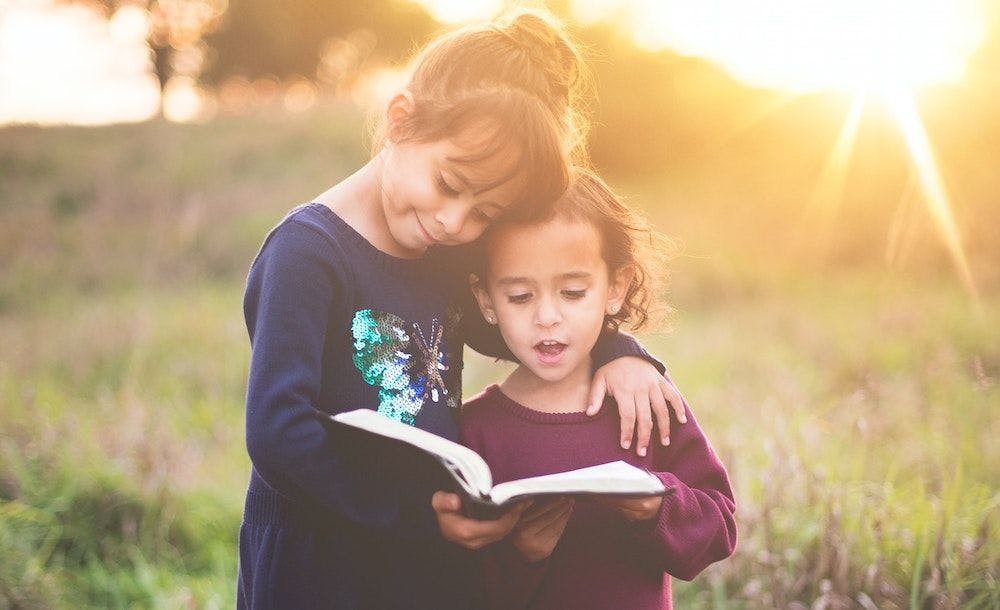
Start them young, and stand by as their self-love and confidence grows and blossoms
Parents almost always teach their kids to be kind. They encourage them to say please and thank you, share their toys, and be a good friend.
But self-kindness is often left unsaid, and in my role as a children’s therapist I’ve heard many children express dislike for themselves, speaking about themselves in negative ways.
That said, every child I have met who is unkind to themselves declares they would never treat a friend this way – instead they would cheer them on and support them, which is of course what they need to do for themselves.
So, how can we encourage our kids to show themselves the same kindness they would show their BFF? Here are five simple, but powerful, ways:
1. Teach them to think kindly about their bodies
Bombarded by social media images of ‘perfect bodies’, it’s no wonder kids can feel a lot of pressure and self-doubt about whether they measure up.
Encourage your child to think about what their body can do, rather than just what it looks like. Being able to see, hear, walk, run, hug, kiss, sing – these are all huge privileges that not everyone has.
Help them see that their body deserves their kindness, their attention, their appreciation, and their care, by role modelling the positive ways you take care of and appreciate your own body.
For older kids, it’s important to make sure they are media literate and understand photoshopping, and the practice of taking 1,000 photos until satisfied. Encourage them to follow a diverse range of accounts showing people of all shapes and sizes.

2. Teach them to self-nurture
Children love to take care of pets and grow things in the garden and, through these activities, they learn the importance of providing what other living things need to thrive.
Help them to see that they need nurturing too, in order to be their best selves. Discuss what this looks like, and include fresh air, rest, relaxation, healthy food, and exercise.
Encourage your child to plant some seeds and each time they tend to them, also do something lovely for themselves. They will soon see the value of self-nurturing, and how it helps them (and their seeds) bloom.
"Help them see that their body deserves their kindness, their attention, their appreciation, and their care"
3. Encourage them to talk kindly to themselves
Brené Brown says: “Talk to yourself like you would to someone you love.” This is a wonderful thing to teach a child.
Kids know that words are powerful, that if they say something mean to someone it hurts them, and if they say something encouraging it can make someone feel good. They need to see how this also applies to themselves.
Psychologists at Michigan University performed a series of experiments to see how self-talk affects behaviour, and discovered that if we use our name when talking to ourselves instead of ‘I’, we tend to speak to ourselves more kindly.
So, prompt your child to say: “C’mon Katie, you can do this!” Rather than, “I can’t do this, it’s too hard.”

4. Show them how to feel good about who they are
Positive affirmations have been proven to work – reducing both stress and worry, and reshaping our minds to be more positive.
Encourage your child to give these a go as they look at themselves in the mirror each day to strengthen their self-belief:
- I feel full of energy and my body is strong
- I am kind and a good friend
- I am loved
5. Guide them in developing self-kindness habits
Kids (just like adults) need to take care of themselves first, as being full up with self-love makes it easier to handle life’s challenges.
Show them how, by modelling self-care in action – have a long bath to unwind, talk over your worries, and watch a funny movie if you need to de-stress. Be overt about these self-kindness activities, and your child will soon see that meeting your own needs is not selfish, but essential.
Have them make a list of all the ways they could be kind to themselves – younger kids might want to make a collage of ideas. Encourage them to pick something off their list whenever they need a pick-me-up, and let acts of self-kindness become their default reaction to tough times.
Becky Goddard-Hill is a child therapist and author of ‘Create your own kindness: Activities to encourage children to be caring and kind’ (Collins Kids, £9.99)
If you’re interested in working with a coach who can help with parenting or working with a youth coach, you can find out more visit lifecoach-directory.org.uk

